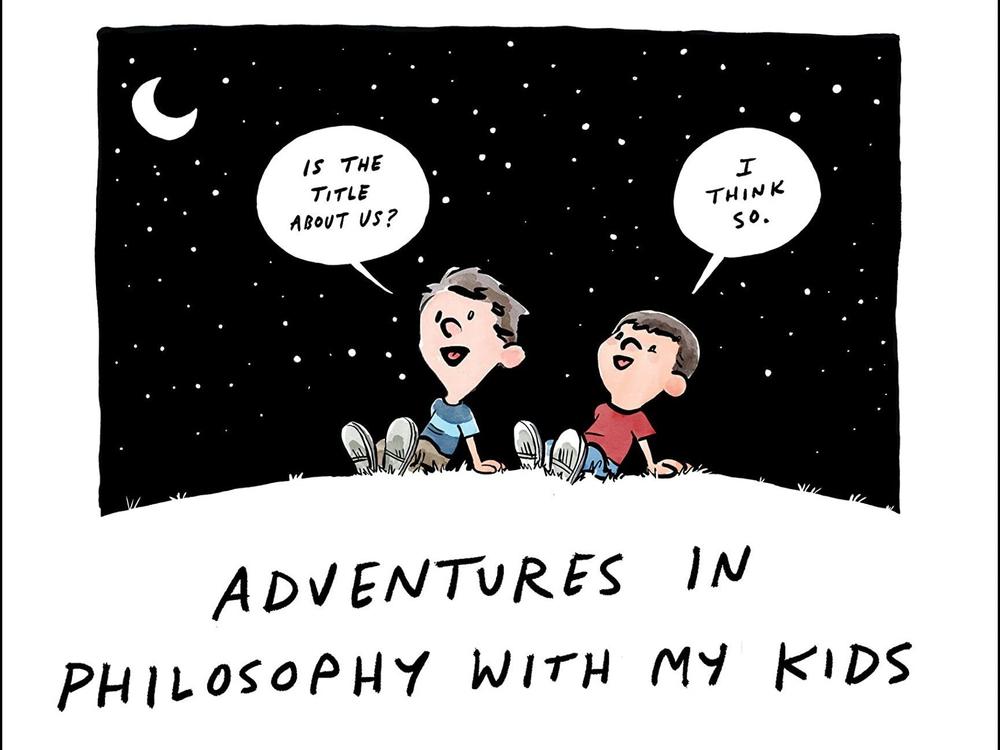Section Branding
Header Content
'Nasty, Brutish, and Short' contends that all parents are raising little philosophers
Primary Content
Nasty, Brutish, and Short by Scott Hershovitz starts out like a fable.
Once upon a time, the author — director of the Law and Ethics Program and professor of law and philosophy at the University of Michigan — begot two sons, Rex and Hank, whom he has been raising as philosophers from toddlerhood. "If you've got a young kid, you are raising a philosopher, whether you know it or not," he asserts.
In positing that philosophy is an innate subject for children, yet employing this premise to persuade adults to be more receptive toward a holistic discourse of daily life, Hershovitz states, "I want you to know that philosophy is too important to leave to philosophers," he says. "And I want you to think that philosophy is fun."
Hershovitz explains that philosophy permeates "every aspect of our lives — the sacred, the profane, and even the mundane." By wryly recounting conversations he has with Rex and Hank during bath time, before bed, on the way to and home from school, Hershovitz sets out to prove that philosophy, like inquisitive, rowdy children, can offer illuminating insights — even when addressing complex subjects related to misbehavior, such as swearing, lying, disobedience, and revenge.
Hershovitz's conviction that philosophy should be both unruly and life-changing at once acknowledges and firmly refutes Thomas Hobbes' view of human existence as "nasty, brutish, and short." Hobbes, a 17th century British philosopher, believed that in a natural state, human lives were regrettably brief, due to poverty and constant strife. This led to his support of a centralized government controlled by an absolute ruler, thereby rejecting Aristotle's idea that human beings are naturally suited to life in a polis where they would reach their fullest potential by exercising their citizenship rights.
Hershovitz's worldview is closer to Aristotle's. While maintaining he is not religious, the author's inquiry reflects an intellectual openness to embrace the world's beauty as well as its tragic, maddening contradictions. From his perspective, a mind that's most receptive to complexities and compassion would likely belong to a child, someone, I presume, a lot like the little prince in Antoine de Saint-Exupéry's unforgettable classic. Perhaps Hershovitz is like the fox figure who tells the little prince (and us) his "simple secret," that "it is only with the heart that one can see rightly; what is essential is invisible to the eye."
In other words, Hershovitz thinks we can become more thoughtful individuals by using reason — the "heart" of philosophy — to examine diverse approaches to human existence and its values. In this light, any form of hatred or prejudice born out of dogma can be considered a failure of interpretation, a lack of full inquiry, a deficiency in reason.
Accordingly, Hershovitz discusses the concept of dream skepticism as a helpful way to question the fluid nature of reality. By telling a story about the Taoist philosopher Zhuangzi who questions if he's a man dreaming he's a butterfly or a butterfly dreaming he's a man, Hershovitz also illustrates how Rex and Hank are ideal avatars for philosophical ruminations aimed at adults/parents: Are we trapped in caterpillar forms even as fully grown humans, thus aspiring to return to our innocent, luminous state as butterflies?
Applying Zhuangzi's dream skepticism to highlight the instability of dogmatic beliefs, and explaining how these beliefs can be recast via the lens of conceptual ethics — Hershovitz cites examples related to gender and sexual preferences. For example, in defining gender as chosen identity rather than biological determinism, he suggests we can become more inclusive in sports when it comes to trans athletes. Similarly, if we reframe the debate about marriage by asking if there is any conceptual difference between a heterosexual union and that of two committed partners — then it might be possible to consider both.
As discussed, Hershovitz's inquiry is driven by openness and compassion — these principles directly defy Hobbes' limited view of human beings as barbaric creatures lacking agency. Hershovitz argues even if humans don't matter much in the grand scheme of the universe, "things matter to us." Without caring about the world, philosophy would simply be a nihilistic exercise — but its symbiotic relationship to our lives offers a moral foundation on which we can finesse our understanding of rights and responsibility. In fact, in restating Pascal's Wager, Hershovitz explicitly acknowledges, "We'd be fictionalists about God and put our faith elsewhere — in each other and in our collective capacity to repair the world."
Ultimately, Hershovitz's approach, in betting on his children's endless capacity to ask trenchant questions, has a bittersweet aspect — it's at once like faith and doubt. Rex and Hank's childhood years are finite. The portal to their seemingly infinite aptitude for wonder may close once they reach adulthood. Nevertheless, Hershovitz reminds parents to embrace our children's "strangeness" as long as we can, and maybe in the process find our way back to the questing child-philosopher within us.
Thúy Đinh is a freelance critic and literary translator. Her work can be found at thuydinhwriter.com. She tweets @ThuyTBDinh
Copyright 2022 NPR. To see more, visit https://www.npr.org.
Bottom Content




